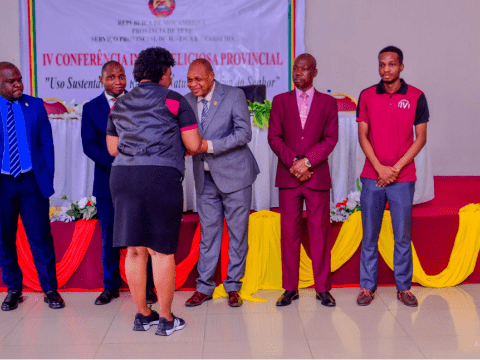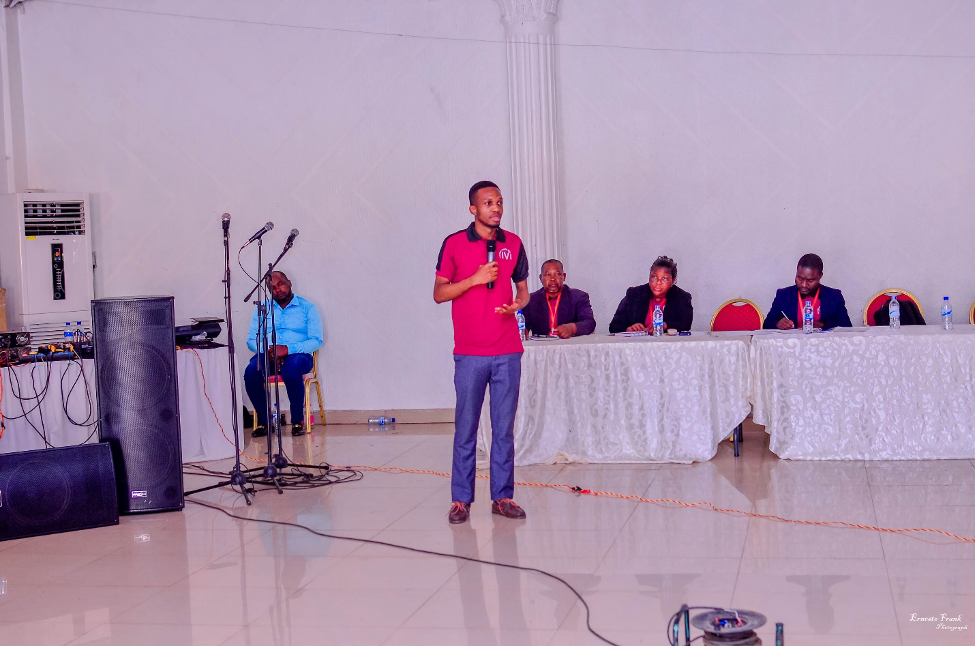The role of Faith Leaders as Environment Stewards

Paulino Augusto, Environment Sustainability and Climate Action, Southern Africa Region.
The target 13.3 of the Climate Action Sustainable Development Goal (SDG) urges us to improve education, awareness-raising, and human and institutional capacity on climate change mitigation, adaptation, impact reduction, and early warning.Considering this, World Vision, under the Enough Campaign, created the conditions for holding the Provincial Inter-Religious Conference in Tete province, Mozambique, under the motto "Sustainable Use of Natural Resources, a Gift from the Lord," in August.
World Vision was invited to participate in a panel discussion on Environmental Stewardship.Recognizing our individual and collective responsibility to care for the Earth, as created by God in Genesis 1, we discussed the urgent need for action. The planet is warming at an unprecedented rate, leading to visible impacts like El Niño, especially in Southern Africa. These impacts include post-harvest losses, destroyed crops, wildfires, and looming food shortages, disproportionately affecting the poor and vulnerable, particularly children.

Anthropogenic emissions of carbon dioxide (CO2) have significantly contributed to climate change. Pollution, deforestation, livestock farming, and the burning of fossil fuels are major culprits. Faith leaders have a crucial role in advocating for community behavior change towards becoming responsible stewards of the environment.
We have an international duty to fulfill the Paris Agreement, Limiting global temperature rise to 2°C, with efforts to reach 1.5°C.This requires reducing greenhouse gas emissions by 42% by 2030.
World Vision representative emphasize specific methods that can be adopted by the communities in Tete, that are: consuming local and seasonal products, as they are fresh, guarantee nutritional quality, accelerate the natural cycles of agricultural crops, are closer to consumers, reduces the need for transportation and packaging, and generate a smaller volume of waste. Limiting meat consumption, especially beef, since its production is associated with deforestation, soil degradation, GHG, water contamination and loss of biodiversity.
Advocate for the use of reusable bags and avoiding products with unnecessary plastic packaging, or even reducing the purchase of new bags by reusing previously obtained ones. Recommended driving less and using bicycles or public transport, and emphasized the importance of managing energy use, reducing water usage, and avoiding water waste.

Furthermore, The illegal and unsustainable cutting of trees is a significant environmental problem.Trees play a vital role in reducing CO2 emissions, providing food, preventing erosion, protecting biodiversity, and mitigating the impact of strong winds. While communities may rely on trees for their livelihoods, it is essential that faith leaders work with community members to reduce tree cutting and promote reforestation in areas that need it.
Religious leaders should also advocate for the use of organic fertilizers. Inorganic products can harm the soil and the environment. Encouraging small farmers to adopt sustainable agricultural practices is crucial for protecting our natural resources.
Community-wide clean-up campaigns are another essential step. These campaigns can help reduce waste pollution and promote a sense of environmental responsibility.
Following a productive discussion, it was agreed that faith leaders would:
- Advocate for environmental sustainability in their worship meetings.
- Create environmental advocacy groups.
- Encourage community clean-up activities.
- Promote replanting and regreening efforts.
By taking these actions, faith leaders can play a pivotal role in inspiring and guiding their communities toward a more sustainable future.